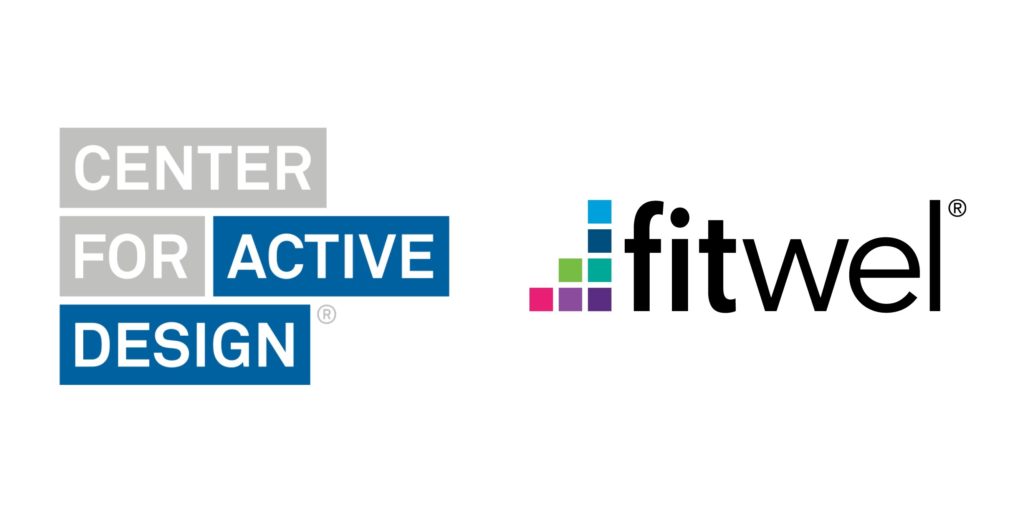

The Center for Active Design (CfAD), the sole licensed operator of Fitwel, the healthy building certification system, and Harrison Street, a leading investment management firm exclusively focused on alternative real assets, announced in early March they have expanded their relationship to accelerate the global healthy building movement.
Through this first-of-its-kind partnership, Harrison Street – already a Fitwel Champion – will implement Fitwel certification across an identified pipeline within its existing portfolio of more than 500 student housing, senior housing, medical office and life sciences properties. As a result of this expanded partnership, Harrison Street and Fitwel will have access to enhanced data sets from which to identify strategies for health and business optimization.
The partnership will create a powerful foundation from which Harrison Street and CfAD intend to bring about broader market transformation at a time when health and wellness are being prioritized more than ever. Strategies for developing healthy buildings – which support the physical, psychological, and social health and well-being of people in buildings and the built environment – have been shown to increase asset values. In fact, a recent MIT study found that leases in certified healthy buildings transact between 4.4 and 7.7 percent more per square foot than their nearby non-certified, non-registered peers.
Jill Brosig, Managing Director and Chief Impact Officer at Harrison Street, said, “The differentiated needs for healthy student housing and senior living environments in particular have been exacerbated in the current environment. The insights gained from the data collected through Harrison Street’s expanded partnership with CfAD will empower us to further advance occupant health and increase the value of our senior and student housing communities.”
Brosig added, “When we first started working with CfAD to certify our projects several years ago, we recognized that student and senior living communities have unique health and wellness needs that require a highly tailored approach in order to be successful. Expanding this partnership advances our mission to make a positive impact on the communities that interact with our properties and the surrounding built environment. For example, mental health issues among college students have been heightened by the pandemic, and we aim to optimize our student housing portfolio to help address these issues upon their return to campus. For seniors, we seek to protect their well-being by creating environments that are conducive to promoting long-term health and mitigating the spread of contagious disease.”
Joanna Frank, President and CEO of CfAD, said, “The healthy building movement has steadily gained traction in recent years, but since the onset of the pandemic we’ve experienced a dramatic increase in demand for certification at scale across entire portfolios of assets. Investment decisions can now be informed by health data to ensure environments are optimized for their occupants. Through our expanded partnership with Harrison Street, we will be better able to hone in on the strategies that promote greater mental health for students and support positive long-term health outcomes for seniors. We look forward to working across the industry to support business decisions based on health metrics.”
An increased focus on the social component of ESG investing among companies, real estate owners and capital allocators has been a driving force in the reception and adoption of Fitwel standards. The impact of environmental and governance initiatives has been easier for companies to quantify and implement, but the impact of social factors has been more difficult to measure. Fitwel offers a set of evidence-based strategies specific to promoting health and wellness in the built environment, which have been shown to positively impact occupants and deliver measurable social impact.
In 2019, Harrison Street and Fitwel collaborated to establish a Senior Housing scorecard for assisted living, independent living, and memory care communities with the goal of helping owners optimize the properties to promote the health and wellness of residents and employees. Select Harrison Street communities and senior living operating partners are participating in the prototype, which officially launched on February 4.
Fitwel’s data reflects the increasing role health and wellness initiatives are playing in real estate portfolios. For example, there have been nearly 2,000 real estate projects registered with Fitwel over the past three years – an average of more than 650 projects per year – up from 343 projects in 2017. Beyond real estate investors, tenants are also adopting these strategies, with Fitwel having seen a 136% increase in tenants registering workplace projects last year.
Fitwel is the world’s leading certification system committed to building health for all®. Generated by expert analysis of 5,600+ academic research studies, Fitwel is implementing a vision for a healthier future where all buildings and communities are enhanced to strengthen health and well-being. Fitwel was originally created by the U.S. Centers for Disease Control (CDC) and Prevention and U.S. General Services Administration. The CDC remains the research and evaluation partner for Fitwel. The Center for Active Design, a global not-for-profit organization, was selected as the licensed operator of Fitwel, charged with expanding Fitwel to the global market. To learn more about Fitwel, please visit: www.fitwel.org.
